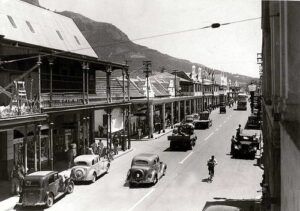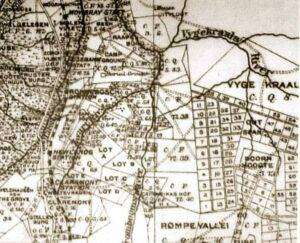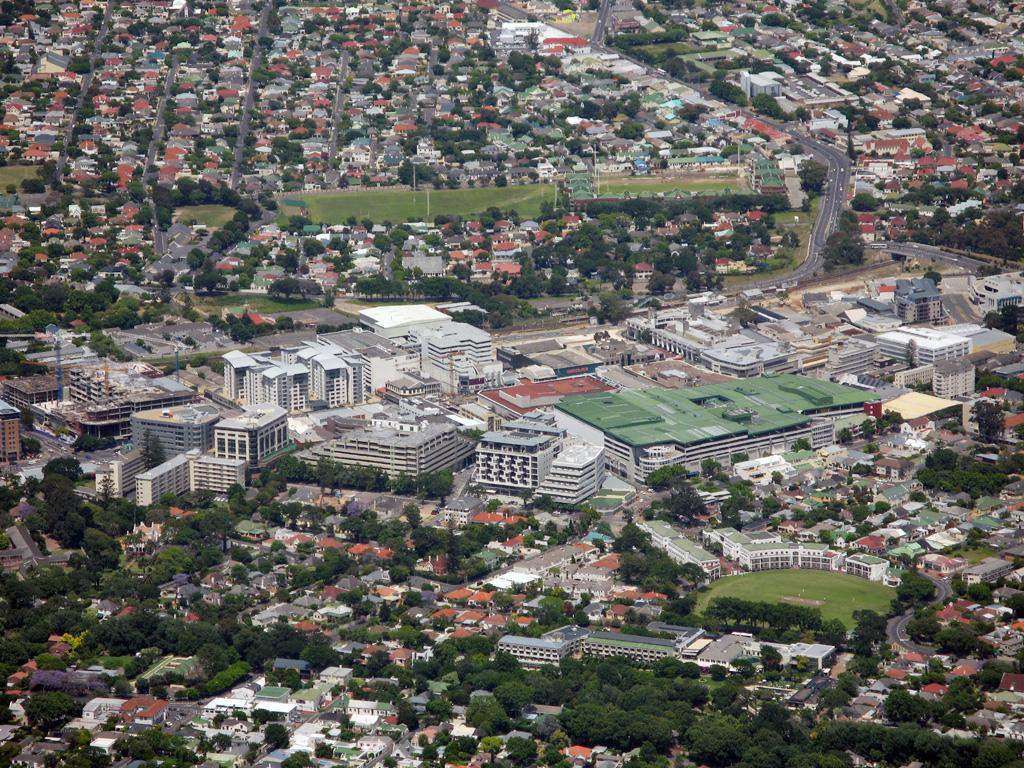History of Claremont
- Province; Western Cape
- Coordinates; 33°58′50″S 18°27′55″E
- Area: 5.21 km2
- Municipality: City of Cape Town
Before the Dutch colonists arrived in 1652 the Cape Peninsula was largely inhabited by the Khoisan people who were nomadic. The Dutch established an outpost in Table Bay and after 1657 they ventured further south to establish farms. Two of these farms Louwvliet and Questenburg were in the areas now called Claremont and Newlands. The area remained agricultural for at least 150 years. Some of the farms in the area produced grapes, others, grain and vegetables.
In the 1800s British settlers bought up properties here and the village began to grow. The area was named after the Claremont house estate in the area.
A few cottages were built in lower Claremont for working-class people, referred to by the government of the time as “non-Europeans. The area grew more when the railway line was extended to Wynberg in 1864. By 1883 the area was incorporated into the Liesbeek municipality which included Upper Claremont, Rondebosch, Wynberg, Mowbray and Newlands.
The end of the Anglo-Boer War saw a housing boom when there was a further subdivision of the larger estates during the 1900s.
After the advent of the British takeover in 1814, the area became more residential than agricultural.
As the suburb grew the main road of Claremont developed into a commercial hub. Claremont was granted municipal status and became a suburb of Cape Town city in 1913.
However, Claremont was identified as a “black spot” in 1953 due to African families squatting in “informal housing” in the suburb. A visiting official reported that the government had to ”get rid” of black and coloured residents. The Group Areas Act of 1913 sealed their fate and blacks were no longer allowed to own or rent land outside their designated areas which were in locations on the outskirts of the city. In 1969 Lower Claremont was declared a white area. All owners of colour had to sell to white people.
After this rezoning, lower Claremont was renamed Harfield Village.

Vintage photo of Main Road Claremont
Post 1994 Coloured people started moving back into the area. It is now cosmopolitan with people of all colours and cultures making their homes and conducting business locally
Keurboom Estate

Things to see and do in Claremont
- Choo Choo Park on Belvedere Road is a safe and enclosed park. There are some well-maintained jungle gyms and swings. The “choo-choo is popular with young visitors. : 07h00-19h00 (April -Sept) 07h00-20h30 (Oct-March)
- Ardene gardens
- The Josephine mill
WEATHER IN CLAREMONT TODAY
see all listings in claremont
Useful Numbers in Claremont
- Police: 021 657 2250
- Municipality City Of Cape Town 0860 103 089
- Traffic department: Hillstar Traffic Department
- Fire: Wynberg-021 444 9623
- Water:0860 103 089
- Electricity:0860 103 089
- Ambulance:10177
- Post office;021 674 3800
- Claremont Civic Centre: 021 444 6948
- Closest hospital;
- Claremont private hospital-21 670 4300
- Life Kingsbury hospital- ER 0216704180
- Clinic-021 444 6426
- Pharmacy;Synergy pharmacy-021 671 7100
- Library-021 673 2060
- SPCA: Cape of Good Hope SPCA-021 700 4140
- Schools: Claremont High School-021 671 0645
Claremont Primary School-021 674 2126
Herschel Girls School-021 670 7500
Rosmead Central Primary School-021 671 6502
Livingstone High School-021 671 5986
Western Province Preparatory School-021 761 8074
Garfield Pre-primary-021 674 2354
Greenfield Girls’ Primary School-021 797 0554
Bairnsleigh Pre-Primary School-021 671 3390
Herschel Secondary School-021 670 7500
Herschel Girls Preparatory Schoo-021 670 7520
Batavia School-021 671 5110
Suburbs adjacent to Claremont are Diep River; Harfield village; Heathfield; Kenilworth; KenwynNewlands; Plumstead ; Rondebosch and Wynberg



